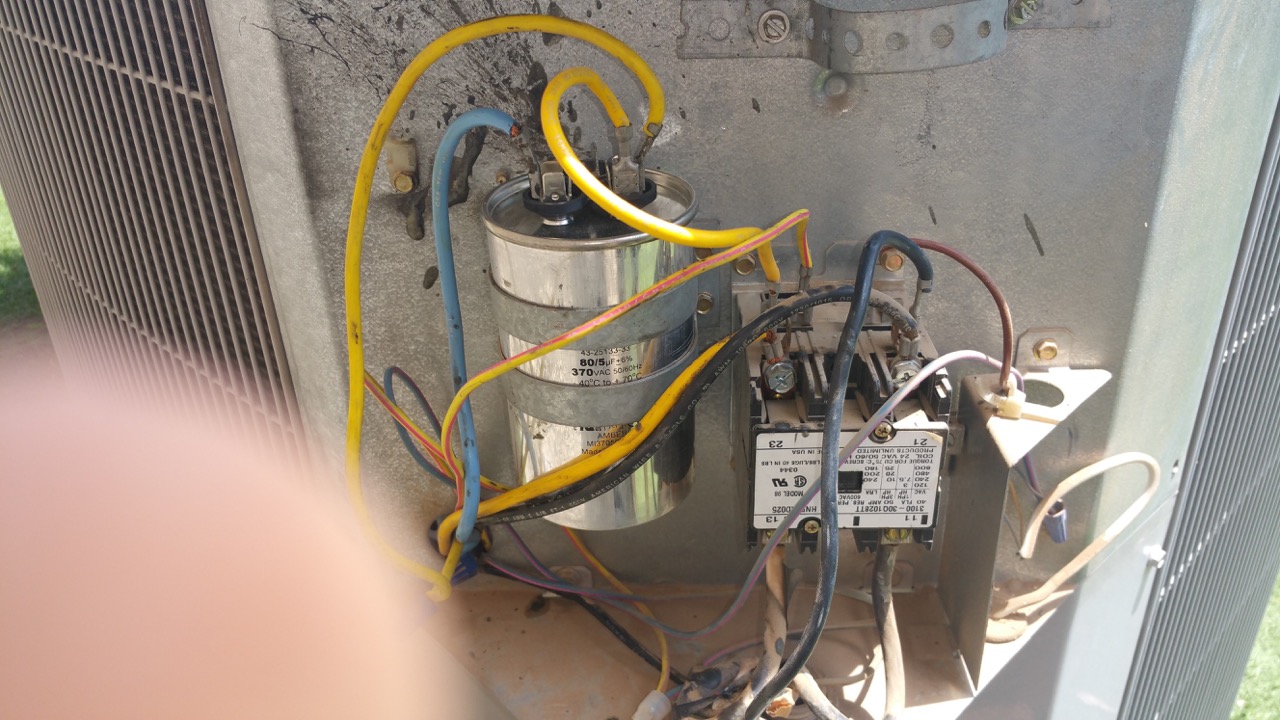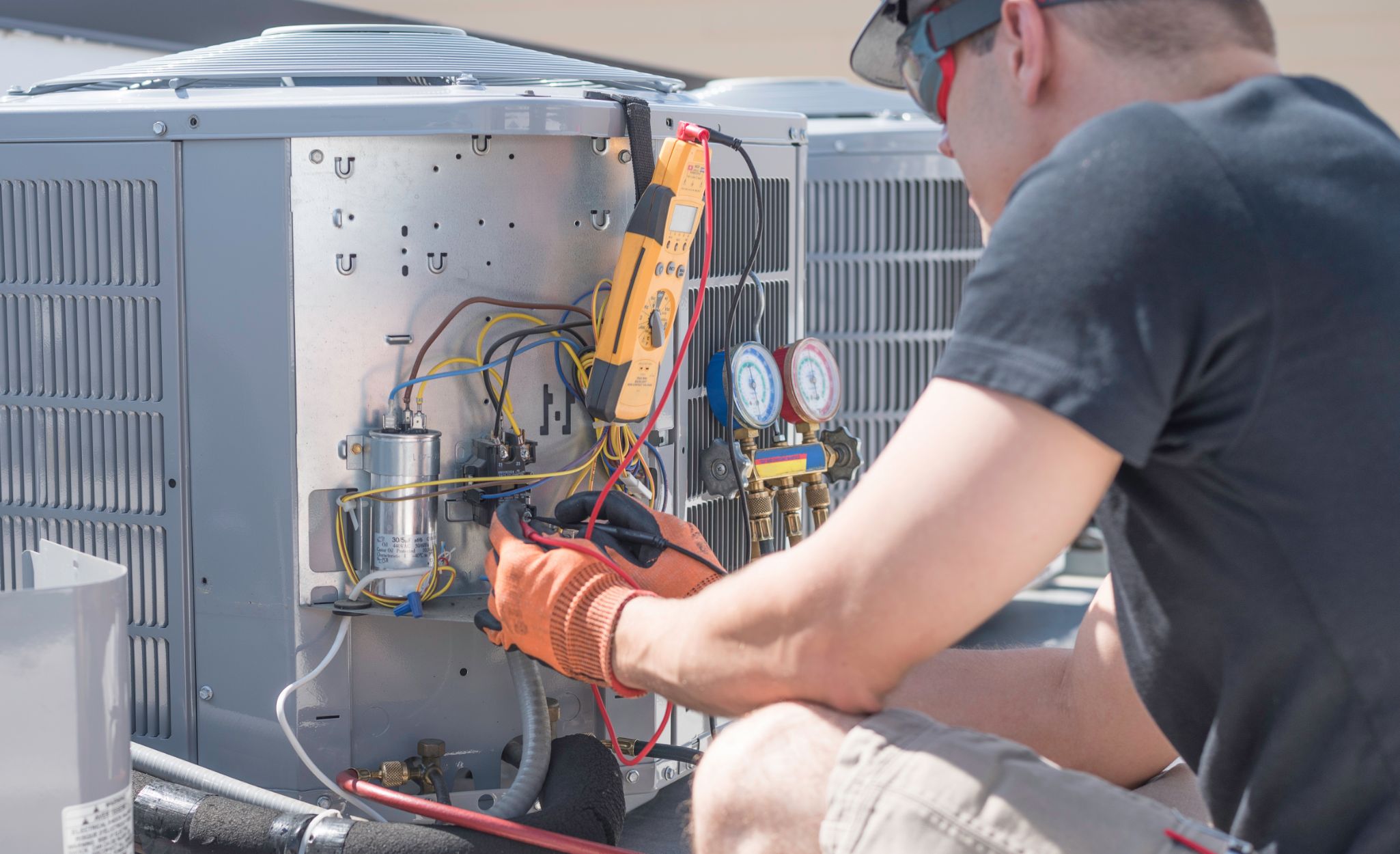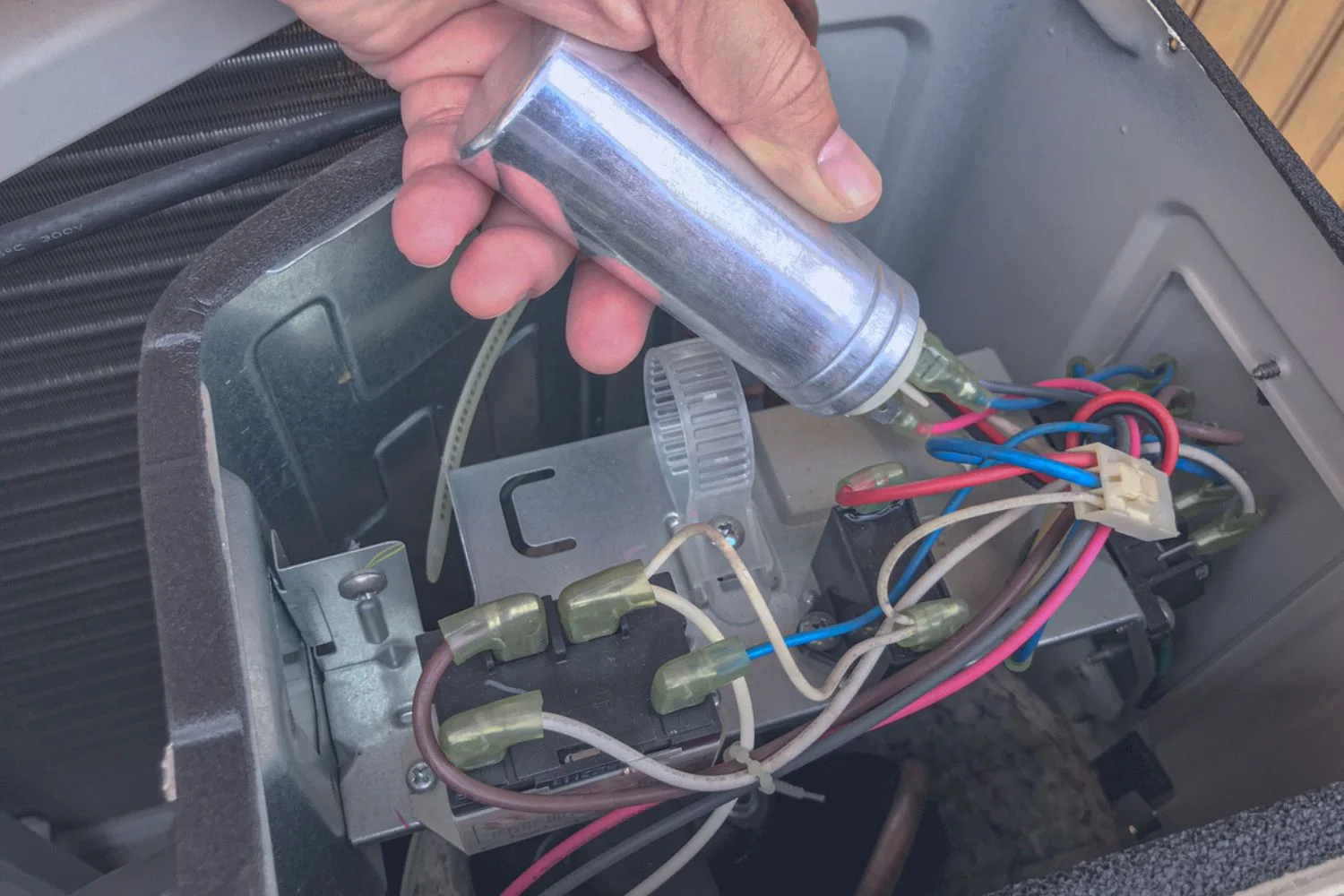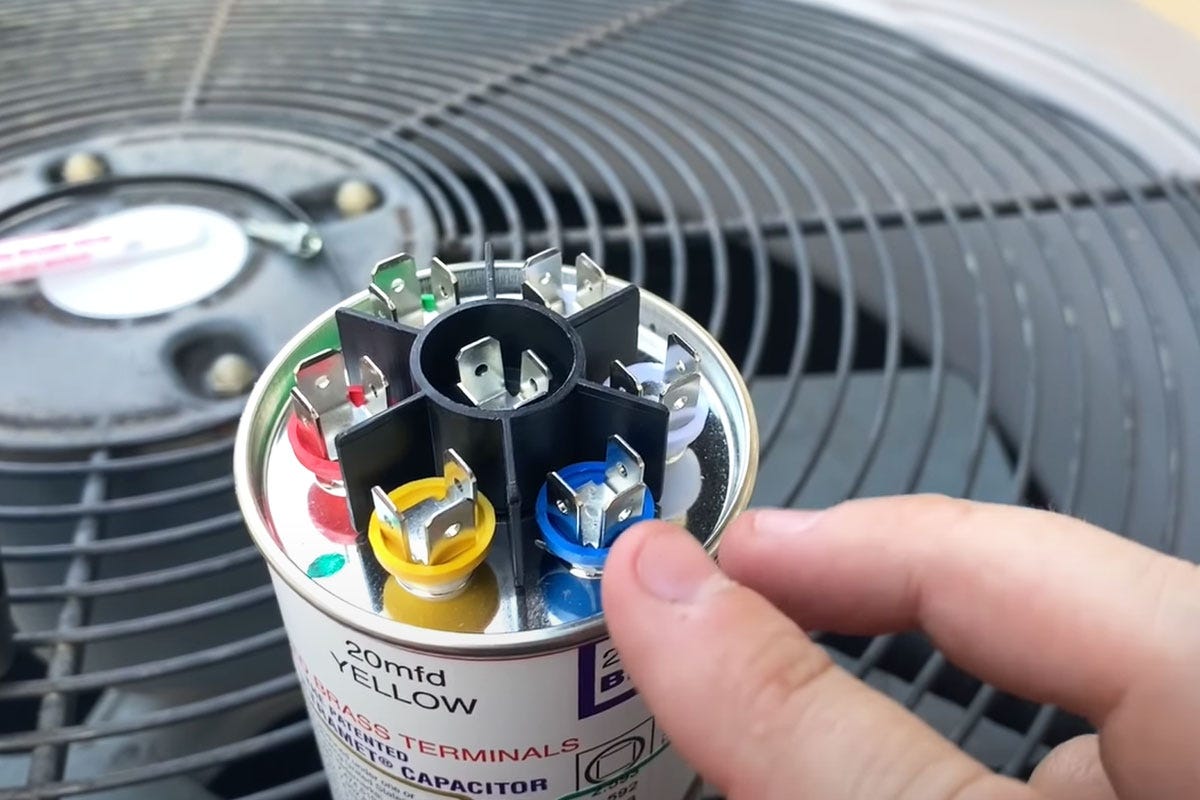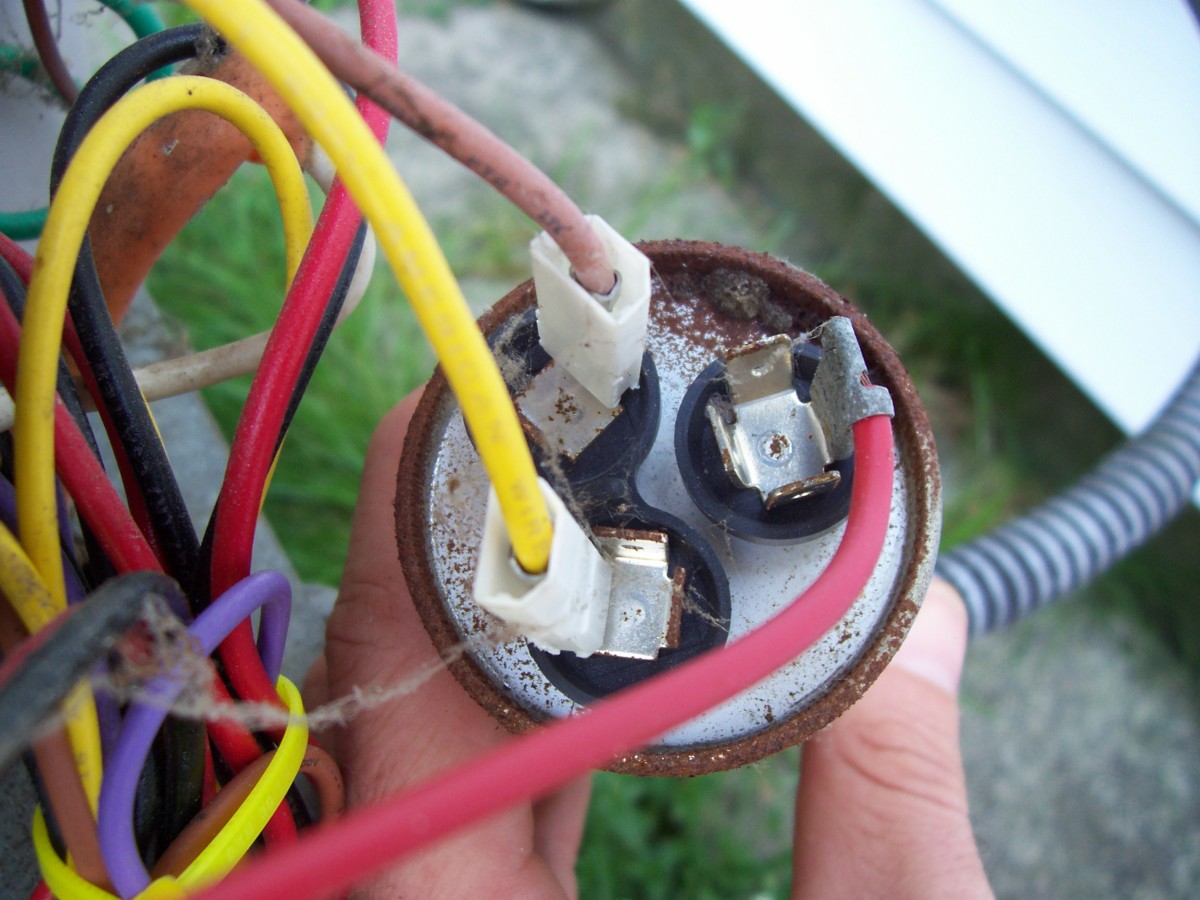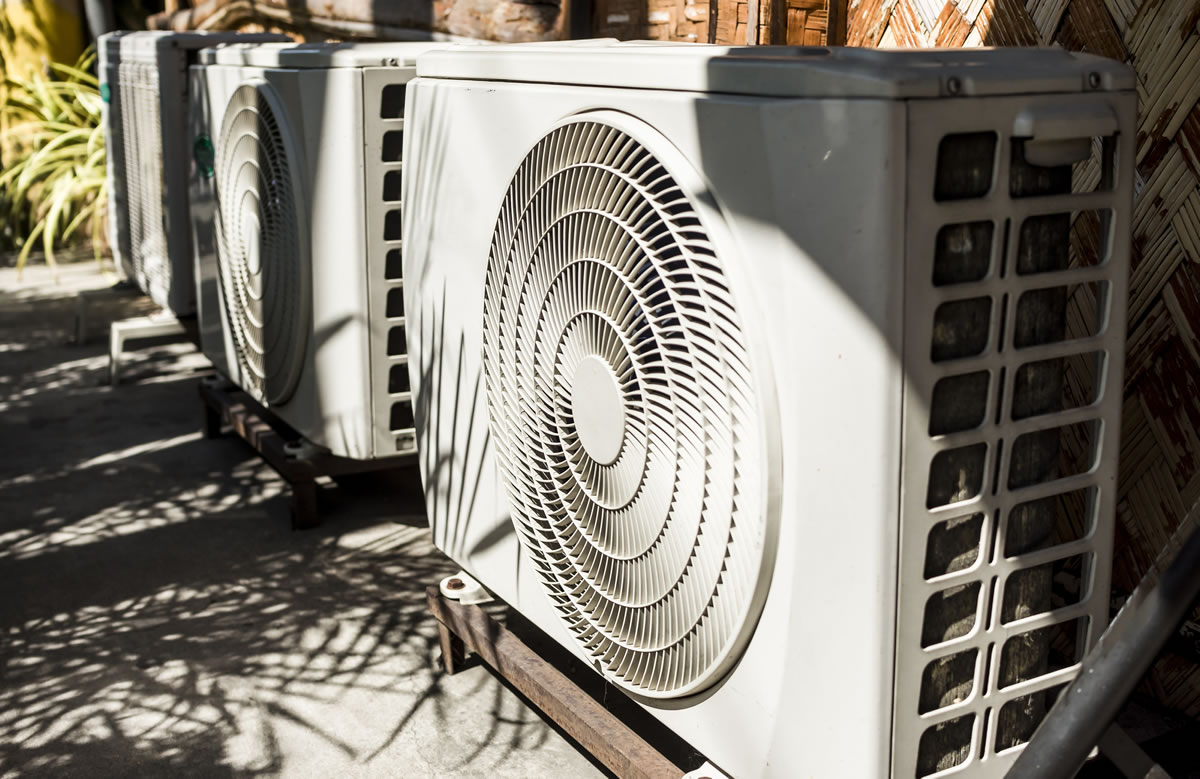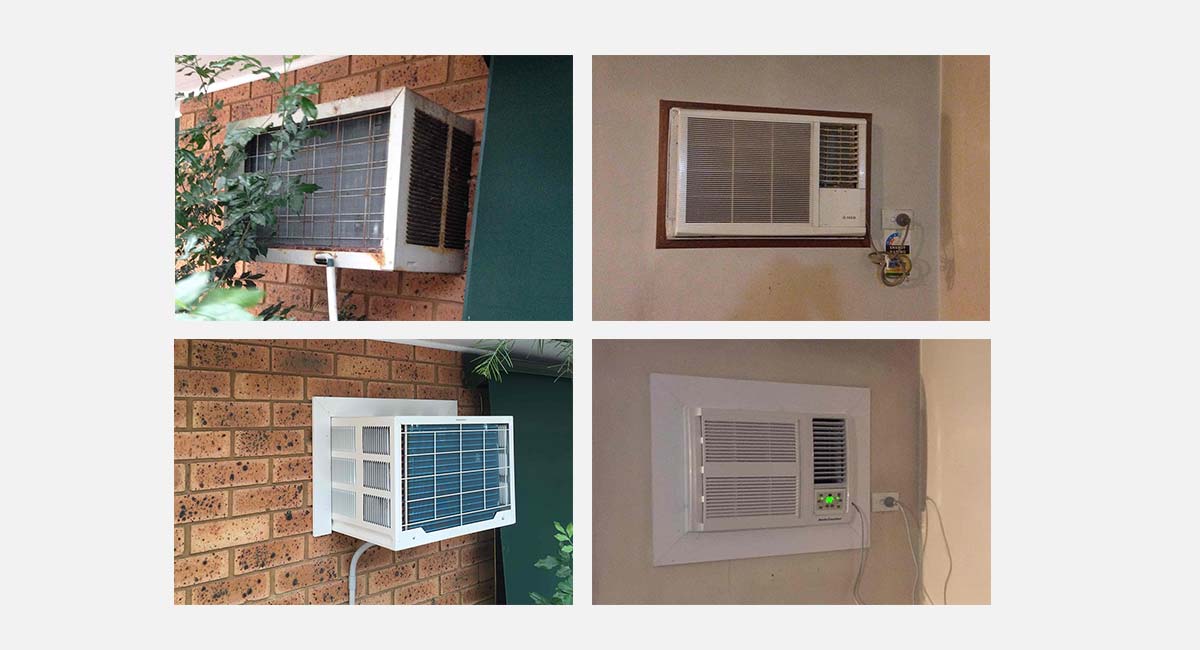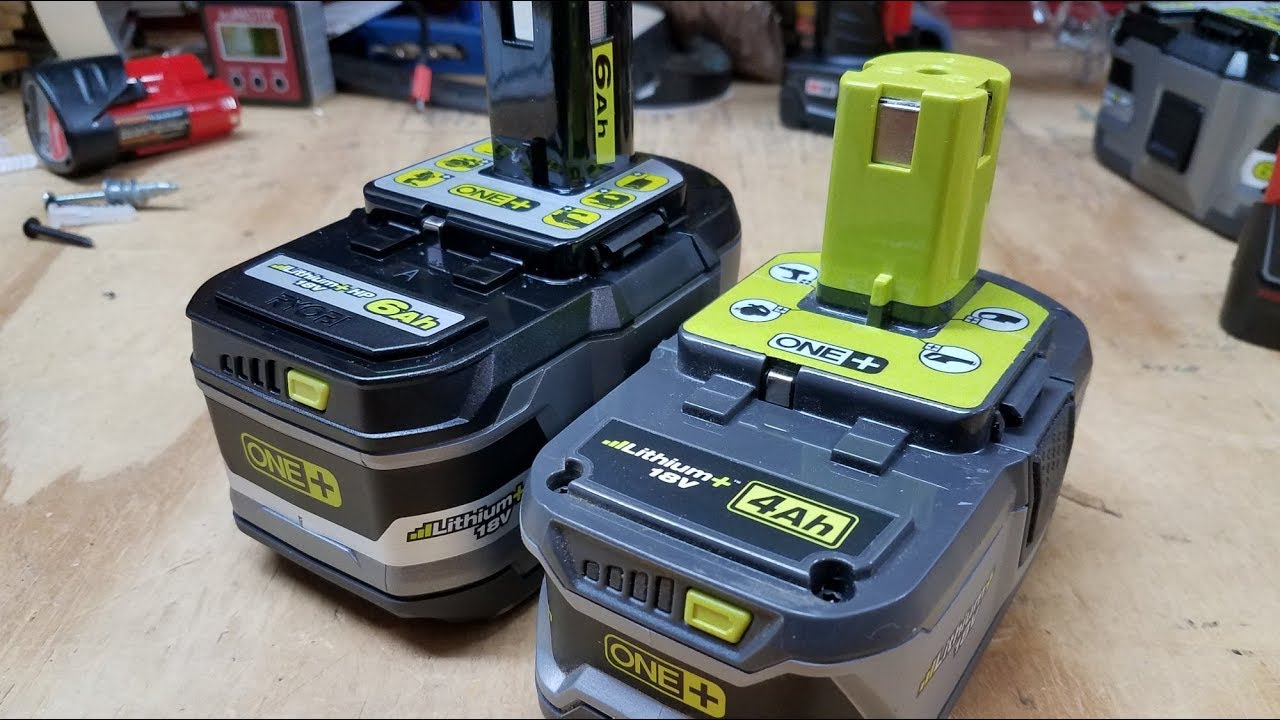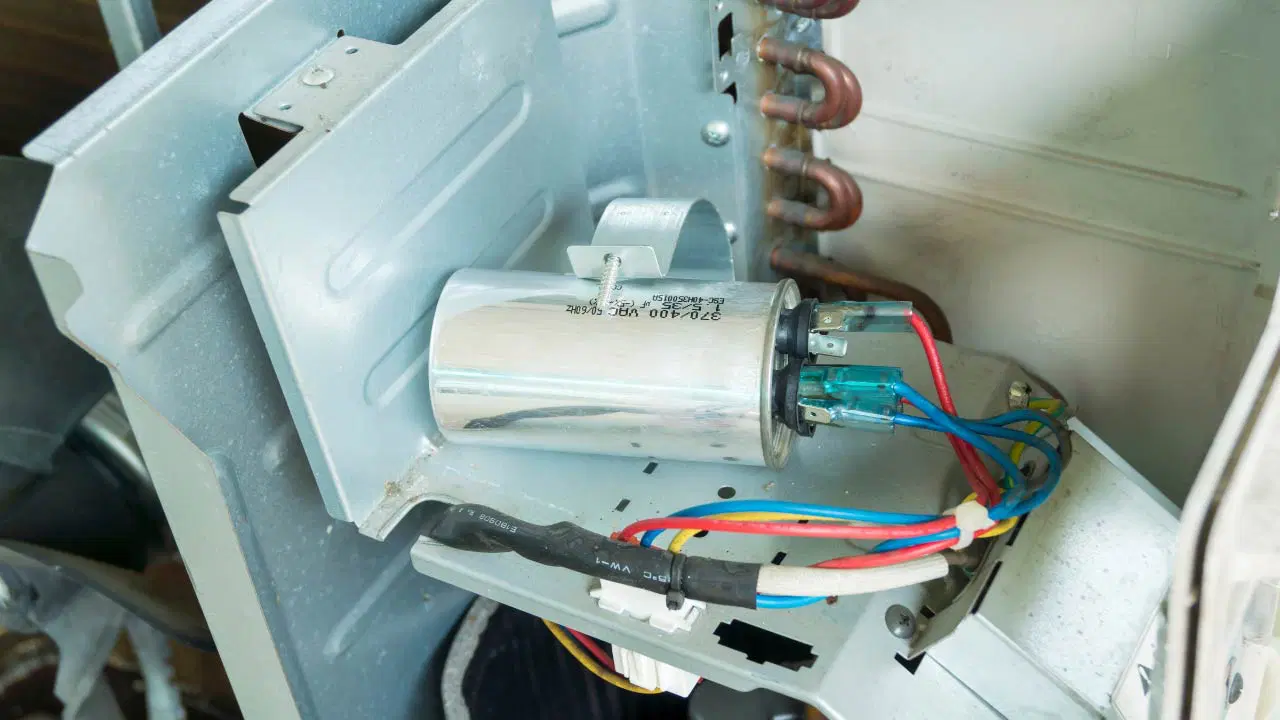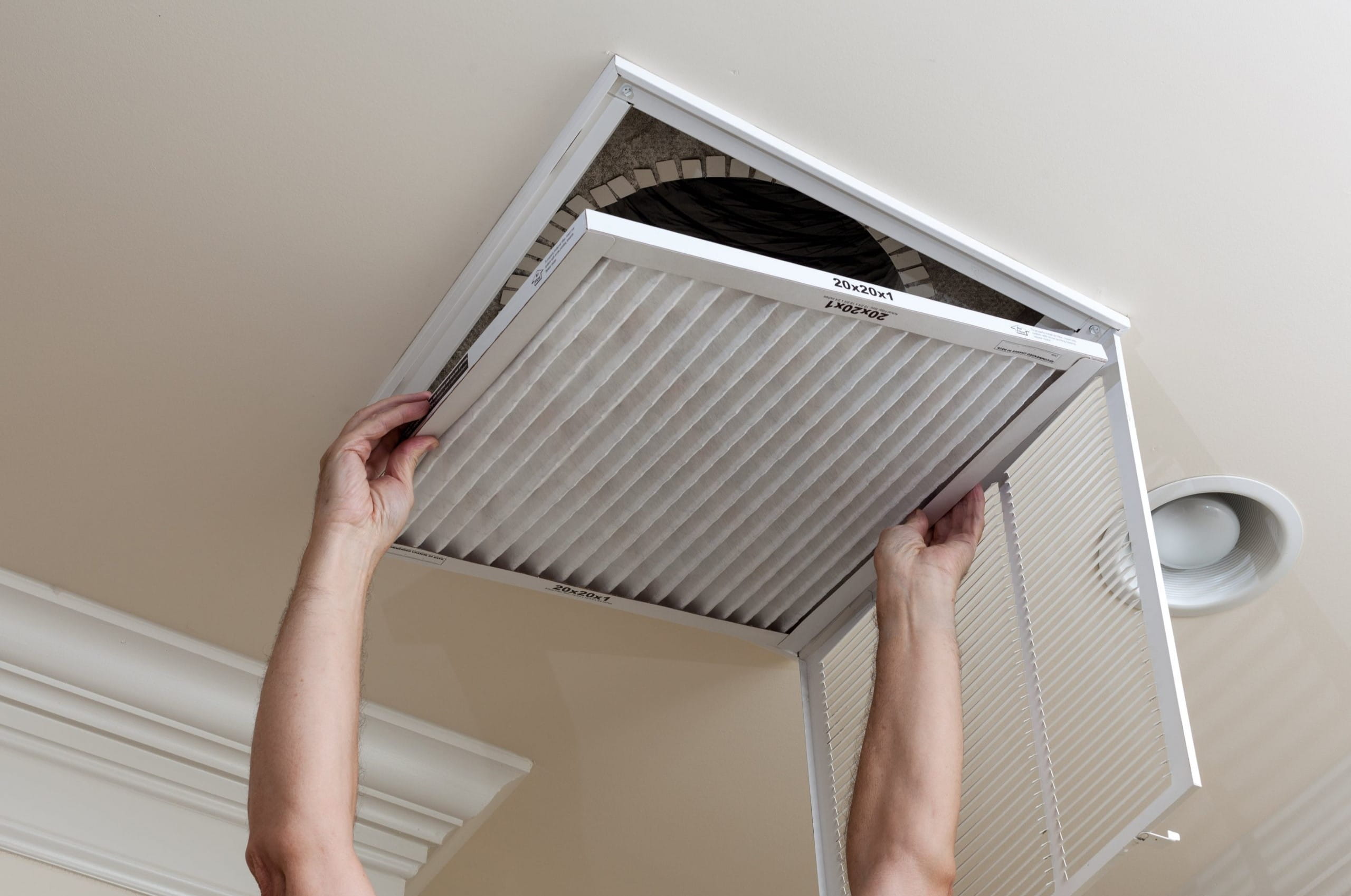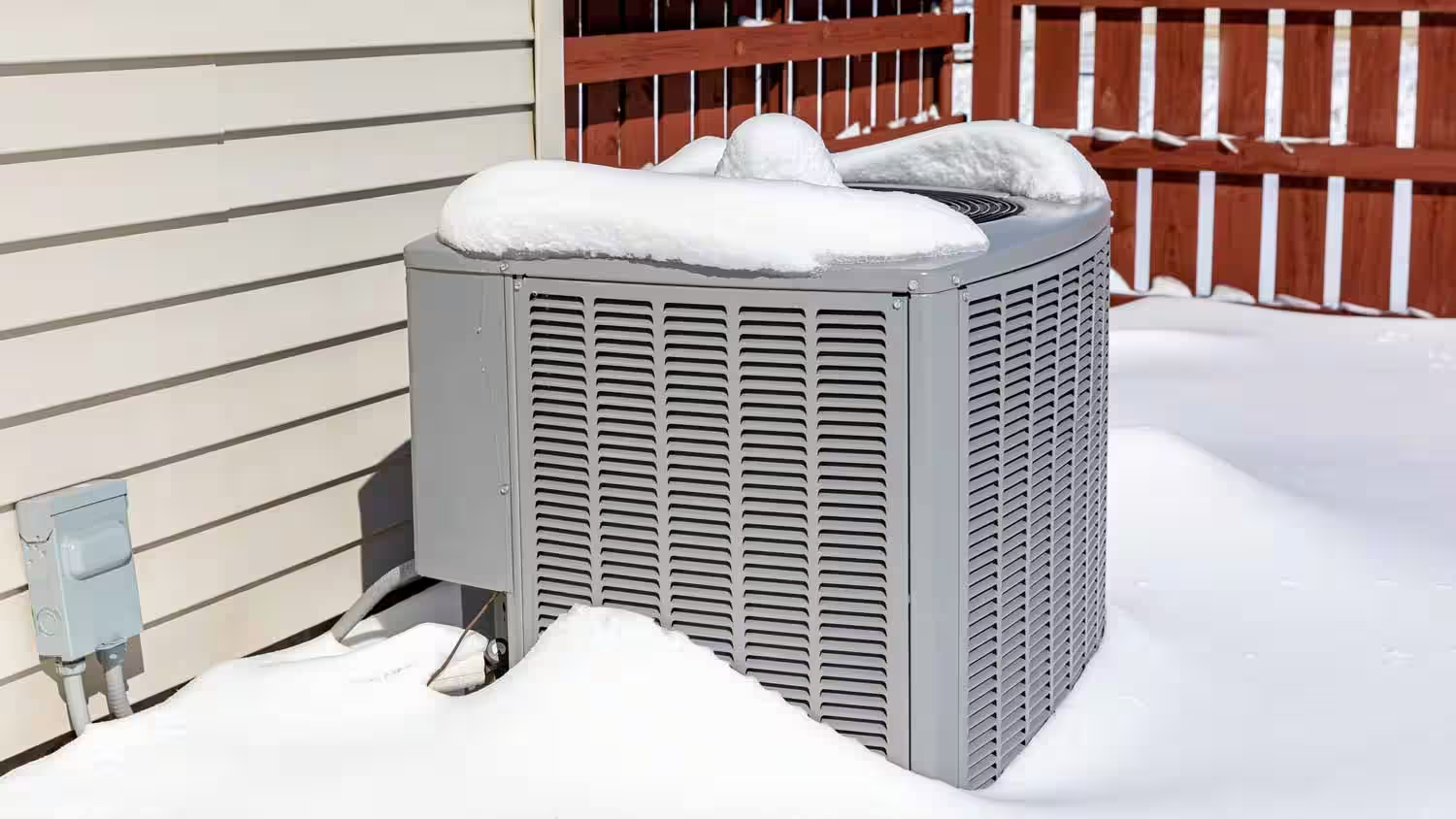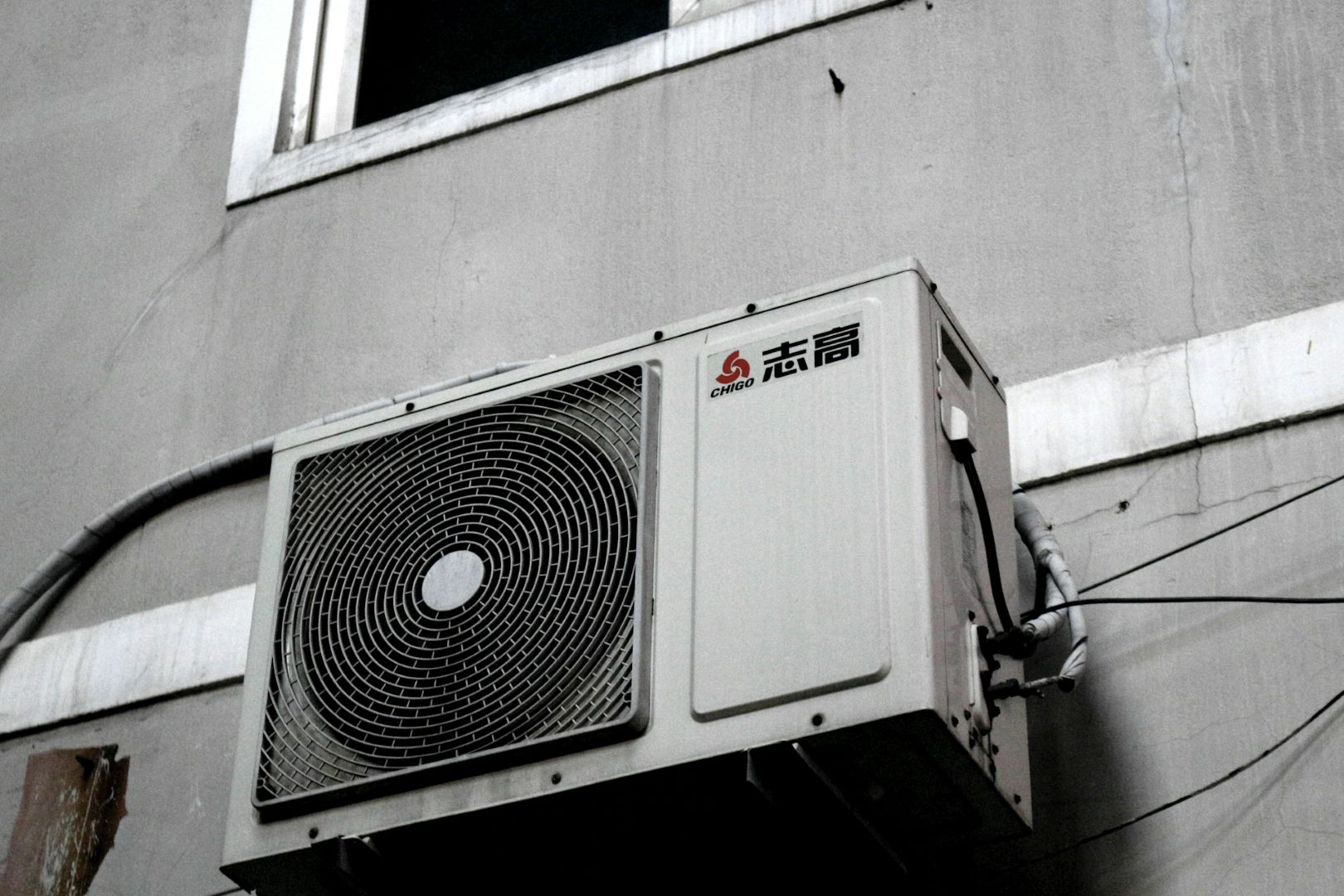Home>Home Maintenance>How Long Does A Capacitor Last In An Air Conditioner
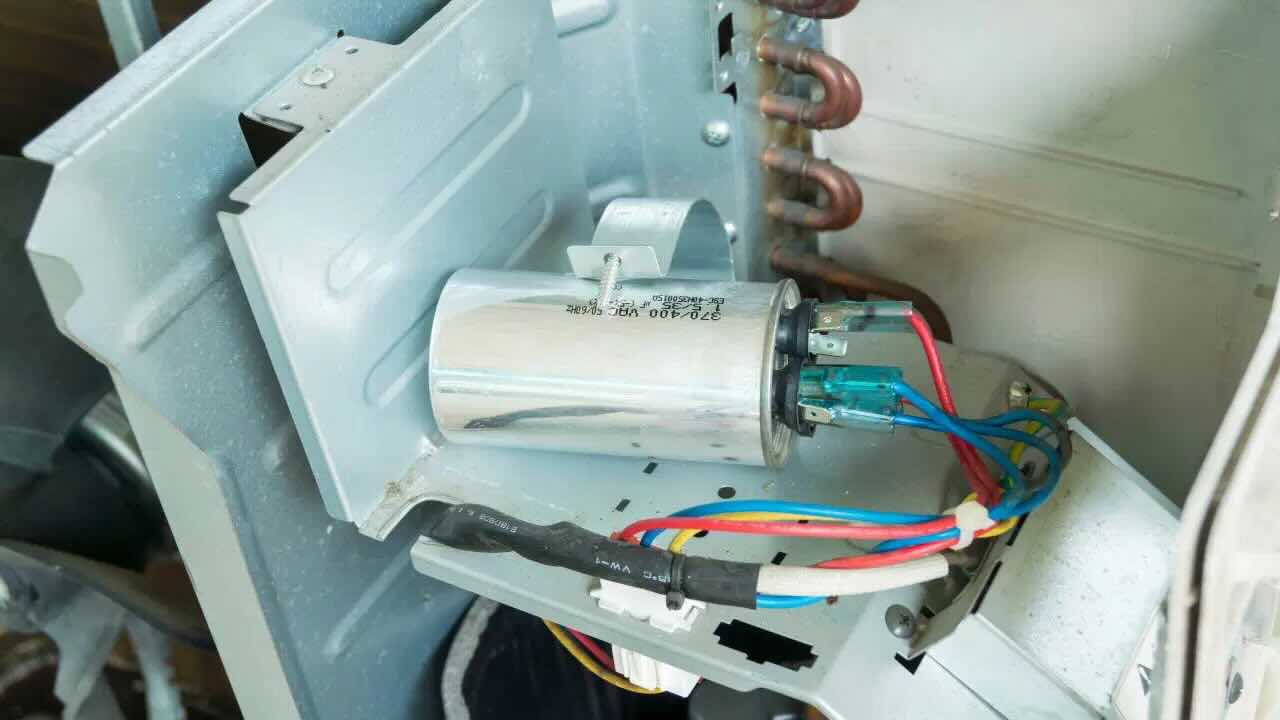

Home Maintenance
How Long Does A Capacitor Last In An Air Conditioner
Modified: March 20, 2024
Learn how long a capacitor typically lasts in an air conditioner and get expert tips for home maintenance.
(Many of the links in this article redirect to a specific reviewed product. Your purchase of these products through affiliate links helps to generate commission for Storables.com, at no extra cost. Learn more)
Introduction
Welcome to our comprehensive guide on the lifespan of capacitors in air conditioners. As a homeowner, it’s important to understand how long your air conditioner’s capacitor will last, as it plays a crucial role in the operation of your cooling system. By knowing the factors that can affect the lifespan of a capacitor and how to identify signs of failure, you can take proactive measures to maintain your air conditioner and ensure its optimal performance.
Before we dive into the details, let’s first understand what a capacitor is and its function in an air conditioner.
Key Takeaways:
- Capacitors in air conditioners typically last 10-15 years. Factors like quality, maintenance, and operating conditions can affect lifespan. Regular maintenance and prompt replacement can extend the lifespan.
- Signs of a failing capacitor include difficulty starting, weak airflow, and strange noises. Timely replacement and professional assistance are crucial for optimal performance and safety.
Read more: How Long Does An Air Conditioner Last
What is a capacitor in an air conditioner?
A capacitor is an essential component in an air conditioner’s electrical system. It is a small device that stores and releases electrical energy. In simple terms, it acts as a temporary storage unit for electricity. When the air conditioner is turned on, the capacitor receives an electrical charge, storing energy. This stored energy is then released to power the various motors, such as the compressor and fan motors, which are responsible for the operation of the air conditioner.
The capacitor works in conjunction with the air conditioner’s compressor, which pressurizes the refrigerant and circulates it through the system to remove heat from the indoor air. It also assists the fan motor in circulating cool air throughout your home. Without a functioning capacitor, the air conditioner’s motors would not receive the necessary electrical boost to start and run efficiently.
Capacitors are available in different types and sizes, depending on the specific requirements of the air conditioner. The most common types are run capacitors and start capacitors. Run capacitors provide a continuous electrical boost to the motors, while start capacitors provide an extra boost during the startup phase.
Now that we understand the role of a capacitor in an air conditioner, let’s explore the factors that can affect its lifespan.
Factors affecting the lifespan of a capacitor
Several factors contribute to the lifespan of a capacitor in an air conditioner. Understanding these factors can help you determine the longevity of your capacitor and take appropriate measures to maintain it. Here are the key factors that can affect the lifespan of a capacitor:
- Quality of the capacitor: The quality of the capacitor itself plays a significant role in its lifespan. Higher quality capacitors are typically designed to withstand more demanding conditions and have a longer lifespan compared to lower-quality ones.
- Operating conditions: The operating conditions of the air conditioner can impact the capacitor’s lifespan. Extreme temperatures, high humidity levels, and frequent power surges can put additional stress on the capacitor, affecting its performance and durability.
- Voltage fluctuations: Fluctuations in the electrical voltage can have a detrimental effect on capacitors. Excessive voltage spikes or irregularities in the electrical supply can cause the capacitor to fail prematurely.
- Excessive load: If an air conditioner is subjected to an excessive load due to oversized or undersized components, it can put strain on the capacitor. This can lead to overheating and a shortened lifespan.
- Incorrect installation: Improper installation of the capacitor can lead to various issues, such as incorrect voltage rating or incorrect wiring connections. These installation errors can cause the capacitor to deteriorate faster.
- Lack of maintenance: Regular maintenance is essential for the health and longevity of all components in an air conditioner, including the capacitor. Neglecting routine maintenance tasks, such as cleaning and inspections, can lead to a buildup of dirt and debris on the capacitor, reducing its efficiency and lifespan.
It’s important to note that while these factors can affect the lifespan of a capacitor, it’s difficult to predict an exact timeframe for its failure. However, on average, capacitors in air conditioners tend to last for a certain period, which we will explore in the next section.
Average lifespan of a capacitor in an air conditioner
The average lifespan of a capacitor in an air conditioner can vary depending on several factors, including the quality of the capacitor, operating conditions, and maintenance practices. While it’s challenging to provide an exact timeframe for a capacitor’s failure, the general consensus is that capacitors in air conditioners have an average lifespan of around 10 to 15 years.
However, it’s important to keep in mind that this is just an estimate, and capacitors can fail earlier or last longer depending on the aforementioned factors. A higher quality capacitor, combined with proper maintenance and favorable operating conditions, can potentially extend the lifespan beyond the average range.
Additionally, it’s worth noting that certain capacitors, such as start capacitors, may have a shorter lifespan compared to run capacitors. Start capacitors are subjected to higher electrical stresses during the startup phase of the air conditioner, which can contribute to faster deterioration.
Regular inspections and maintenance can help identify any potential issues with the capacitor and allow for timely replacement, preventing a sudden system breakdown. It’s also essential to pay attention to the signs of a failing capacitor, which we will discuss in the next section.
Remember, treating your air conditioner with care and providing it with proper maintenance can significantly contribute to the longevity of the capacitor and the overall performance of your cooling system.
Signs of a failing capacitor
Identifying the signs of a failing capacitor is crucial in order to prevent further damage to your air conditioner and ensure its optimal performance. Here are the common signs that indicate a capacitor might be failing:
- Difficulty starting: If you notice that your air conditioner is having trouble starting or takes longer than usual to kick on, it could be a sign of a failing capacitor. The capacitor provides the initial electrical boost to start the motors, so if it’s not functioning properly, the startup process may be hindered.
- Weak airflow: A failing capacitor can also result in reduced airflow from the air conditioner’s vents. If you notice that the air coming from the vents is weaker than usual or not as cool, it could indicate a capacitor issue.
- Frequent system cycling: When a capacitor is failing, the air conditioner may experience frequent on-off cycling. This is often referred to as short-cycling and can put additional strain on the system, potentially leading to more serious problems if not resolved promptly.
- Strange noises: If you hear unusual buzzing, humming, or clicking noises coming from your air conditioner, it could be a symptom of a failing capacitor. These noises can be caused by electrical arcing or irregular electrical flow in the capacitor.
- Leaking or bulging: Physical damage to the capacitor, such as bulging or leaking of fluids, is a definitive sign of failure. If you notice any abnormalities in the appearance of the capacitor, it’s important to have it inspected and replaced as soon as possible.
If you experience any of these signs, it is recommended to contact a professional HVAC technician to diagnose the issue and provide the necessary repairs or replacement. Ignoring a failing capacitor can lead to further damage to the air conditioner and potentially result in a complete system breakdown.
Regular maintenance and inspections can help catch capacitor issues early, allowing for timely repairs or replacement to keep your air conditioner running smoothly.
Regular maintenance and cleaning of your air conditioner can help extend the lifespan of the capacitor. Keep the unit free of debris and have a professional inspect it annually.
Importance of regular maintenance for capacitors
Regular maintenance is essential for the health and longevity of capacitors in air conditioners. By implementing a maintenance routine, you can prevent potential issues, extend the lifespan of the capacitor, and ensure the optimal performance of your cooling system. Here are some reasons why regular maintenance is important for capacitors:
- Early detection of problems: Regular maintenance allows technicians to inspect the capacitor and identify any signs of wear, damage, or malfunction. Catching these issues early can prevent further damage to the capacitor and other components of the air conditioner.
- Cleaning and debris removal: Over time, capacitors can accumulate dirt, dust, and other debris, which can impact their performance. Regular maintenance involves cleaning and removing any buildup on the capacitor, ensuring proper airflow and electrical conductivity.
- Tightening electrical connections: Loose or corroded electrical connections can cause capacitor failure. During maintenance, technicians will check and tighten any loose connections, reducing the risk of electrical issues.
- Inspecting for voltage irregularities: Capacitors are sensitive to voltage fluctuations. During maintenance, technicians can measure and monitor the voltage levels, ensuring that they are within the recommended range. If there are any irregularities, they can be addressed promptly, preventing damage to the capacitor and other electrical components.
- Recharging or replacement if necessary: Regular maintenance allows technicians to assess the performance of the capacitor and determine if it needs to be recharged or replaced. By addressing capacitor issues early, you can avoid sudden breakdowns and the need for emergency repairs.
Overall, regular maintenance helps optimize the lifespan and performance of capacitors in air conditioners. It reduces the likelihood of unexpected failures, improves energy efficiency, and saves you from costly repairs or replacements down the line.
It’s important to consult with a professional HVAC technician for regular maintenance, as they have the expertise and knowledge to properly inspect and service capacitors and other components of your air conditioner.
Extending the lifespan of a capacitor
If you want to maximize the lifespan of the capacitor in your air conditioner, there are several steps you can take to ensure its longevity. By implementing these practices, you can extend the lifespan of your capacitor and improve the overall performance of your cooling system:
- Regular maintenance: As mentioned earlier, regular maintenance is essential for the health of the capacitor. Schedule annual maintenance with a professional HVAC technician to clean, inspect, and test the capacitor, ensuring that it is operating optimally and catching any potential issues early.
- Keep the area around the air conditioner clean: Ensure that the area around your outdoor unit is clear of debris, grass, leaves, and any other obstructions. This prevents debris from entering the unit and potentially causing damage to the capacitor and other components.
- Protect from power surges: Power surges can damage capacitors. Use surge protectors or consider installing a whole-house surge protector to safeguard your air conditioner from sudden voltage spikes.
- Provide proper airflow: To maintain the optimal performance of the capacitor, ensure that there is proper airflow around the unit. Keep vents and registers unobstructed and clean or replace air filters regularly. Good airflow helps prevent overheating, which can impact the lifespan of the capacitor.
- Avoid overworking the air conditioner: Avoid running your air conditioner excessively or setting the thermostat too low. Overworking the unit can put unnecessary strain on the capacitor and other components, shortening their lifespan.
- Address issues promptly: If you notice any signs or symptoms of a failing capacitor, such as difficulty starting or weak airflow, address the issue promptly. Ignoring problems can lead to further damage and potential system breakdown.
- Use high-quality capacitors: When it’s time to replace the capacitor, invest in a high-quality, reputable brand. High-quality capacitors are designed to withstand demanding conditions and have a longer lifespan compared to cheaper alternatives.
By following these practices, you can significantly extend the lifespan of the capacitor in your air conditioner. However, it’s important to remember that capacitors will eventually wear out and require replacement, even with proper maintenance and care.
Knowing when to replace a capacitor is essential for maintaining the optimal performance of your air conditioner, which we will discuss in the next section.
When to replace a capacitor in an air conditioner
Knowing when to replace a capacitor in an air conditioner is crucial to ensure the continued performance and efficiency of your cooling system. While there is no specific timeframe for replacing capacitors, there are certain indicators that can help you determine when it’s time for a replacement:
- Age: As capacitors age, their performance and reliability can start to decline. If your capacitor is approaching the 10 to 15-year mark, it’s worth considering a replacement, even if it hasn’t shown any signs of failure.
- Visible damage: If you notice physical damage to the capacitor, such as bulging, leaking fluids, or corroded terminals, it’s a clear indication that it needs to be replaced. Physical damage can affect the capacitor’s functionality and pose a safety risk.
- Inconsistent performance: If your air conditioner experiences inconsistent performance, such as frequent system cycling, difficulty starting, or weak airflow, it could be a sign of a failing capacitor. Replacing the capacitor can often resolve these problems and restore optimal performance.
- Failed capacitance test: A professional HVAC technician can perform a capacitance test to measure the capacitance value of the capacitor. If the capacitor fails this test, it indicates that it is no longer functioning properly and needs to be replaced.
- High energy consumption: A failing capacitor can cause an air conditioner to consume more energy than usual. If you notice a sudden increase in your energy bills without any other explanation, a faulty capacitor could be to blame.
It’s important to consult with a professional HVAC technician for an accurate diagnosis and replacement of the capacitor. They have the expertise and knowledge to determine if a replacement is necessary and can recommend the appropriate capacitor for your specific air conditioner model.
Remember, replacing a capacitor involves working with electrical components, so it’s important to leave the task to trained professionals to ensure safety and proper installation.
By replacing a failing or aged capacitor in a timely manner, you can avoid sudden system breakdowns, improve energy efficiency, and prolong the lifespan of your air conditioner.
Conclusion
Understanding the lifespan of capacitors in air conditioners is vital for homeowners looking to maintain the optimal performance of their cooling systems. While the average lifespan of a capacitor is around 10 to 15 years, various factors can influence its longevity.
Factors such as the quality of the capacitor, operating conditions, voltage fluctuations, excessive load, incorrect installation, and lack of maintenance can impact the lifespan of a capacitor. Regular maintenance, including cleaning, inspections, and addressing issues promptly, plays a crucial role in extending the capacitor’s lifespan and preventing unexpected failures.
Signs of a failing capacitor, such as difficulty starting, weak airflow, frequent system cycling, strange noises, and physical damage, should be taken seriously, and professional assistance should be sought to diagnose and repair any issues.
Regular maintenance practices, such as cleaning, providing proper airflow, protecting against power surges, and addressing issues promptly, can help extend the lifespan of capacitors in air conditioners. By adhering to these practices, homeowners can prolong the capacitor’s lifespan and optimize the overall performance of their cooling systems.
Knowing when to replace a capacitor is crucial, and signs such as age, visible damage, inconsistent performance, failed capacitance tests, and increased energy consumption can indicate the need for replacement. Consulting a professional HVAC technician for accurate diagnosis and replacement ensures safety and effective installation.
In conclusion, capacitors are integral components of air conditioners, and their proper maintenance and timely replacement contribute to the longevity and efficiency of the cooling system. By understanding the factors affecting their lifespan, recognizing signs of failure, and implementing regular maintenance practices, homeowners can ensure the continued comfort and functionality of their air conditioning systems for years to come.
Frequently Asked Questions about How Long Does A Capacitor Last In An Air Conditioner
Was this page helpful?
At Storables.com, we guarantee accurate and reliable information. Our content, validated by Expert Board Contributors, is crafted following stringent Editorial Policies. We're committed to providing you with well-researched, expert-backed insights for all your informational needs.
